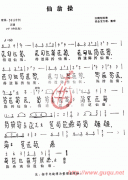Don’t buy in to everything you read
Reader question:
Please explain “buy in” and this sentence: Don’t always buy in to all that you read in the paper.
My comments:
Here, you’re advised not to believe everything you read in the newspaper – or on the Internet for that matter. Do not believe, that is, that what’s said in the newspaper is always true.
In other words, don’t subscribe to everything you read.
Subscribe to? Yeah, if you subscribe to something, you pay regularly for that service. For example, you subscribe to a newspaper by paying for it regularly – although increasingly fewer people do that, thanks to the Internet and no thanks to declining journalist qualities everywhere.
But first, buy in.
As a business term, “buy in” means “buy your way in”.
If you buy some shares of a company, for instance, they call that buying your way in. You pay your way into owning (shares of) that company. You’ve bought your way into ownership. If you’re member of the working class, i.e. you are an ordinary employee that gives you an opportunity to learn what it feels like to be an owner of a business.
That’s the good part. The rub is that you do have to pay to get your way in, and we all know how volatile the stock market can be. So do it at your own risk, or peril.
If you buy in to an idea, on the other hand, it means you believe that idea to be true and worthy. You often still have to pay in monetary terms. If you join a party or a church, for example, you usually have to pay for membership. But more importantly, you join because you believe in their tenets, ideals and principles. You think they’re right.
Well, being a non member of any party or religion, I have little else to say here. So let’s get back to newspapers, a subject I know a bit more about.
At any rate, when someone says something like “Don’t believe everything you see or hear in the news”, I know where they come from. Without going deep into analysis, I want to point out a simple fact, the fact that so much of what’s going on in this world today is determined by special interests.
Or particular interests, I shall say. All interests are special, you say, and quite rightfully so. But the term “special interests” refer to special interest groups that share the same political aim, groups that are actively pushing for changes in government policy in order to advance their own interests.
When America went to war with Iraq, for instance, it was pushed by oil firms and arms manufacturers. On the surface, they went there to rid Iraq of dictatorship and Weapons of Mass Destruction, but the hidden agenda of these special interests groups was to, among others, control its oil.
The Iraq war was a good case in point because eventually no WMDs were found. And so people who believed, or bought in to that idea felt cheated. They as a matter of fact allowed themselves to be fooled because they were gullible and unquestioning.
Other business interests are out there working their way into dominating public discourse all the time. That’s why it takes a questioning and discerning public to ensure healthy development for society at large – to ensure for instance that bad policies and agendas are defeated before they can do any real damage.
In short, do not always buy in to everything you read because, in the final analysis, it is you, a member of the general public, who will have to pay the price.
Alright, here are media examples of people buying in to something, an idea, a theory, philosophy, etc:
1. Richard Turner, director of marketing and fundraising at SolarAid, has worked in charity fundraising for more than 20 years and believes that admitting failure is the first stage to unlocking innovation. “We’ve started to realise that problems are a real opportunity to engage partners so rather than hide problems, our skill is defining them and sharing them – both internally and with the world.”
The charity recently had a problem where a cyclist fundraiser needed to auction a famous photographer’s prints but needed a storage area first, “so we put the problem out on Facebook and within 24 hours we had someone who not only could store them, but could sort out an exhibition and auction the prints,” Turner says.
Although SolarAid is a small charity with about 10 London staff and a turnover of about 2.5m, it has more than 15,000 followers on Facebook and this response is prompting the charity to develop a problem page on its website, covering issues from smaller specifics to large, logistical issues.
Trusting staff to express themselves freely can also spark innovation, says Turner: “We’re trying to encourage our staff to communicate freely so any member of staff can set up and run a blog or Twitter linking from our homepage – we don't dictate what they have to say. So instead of having a bottleneck of content [to be vetted by internal communications staff], staff are self-editing.”
热门曲谱
 渡情笛子曲谱
渡情笛子曲谱 曲谱自学网今天精心准备的曲谱是《渡情笛子曲谱》,下面是详解!
竹笛 我想学 渡情 请问是买A还是B调 的笛子 我还要...
竹笛的调和...
[详情]分类:曲谱大全时间:07:36 c调口琴曲谱
c调口琴曲谱 曲谱自学网今天精心准备的曲谱是《c调口琴曲谱》,下面是详解!
求c调24孔口琴简谱大全
小弟求c调24孔口琴简谱大全,邮箱:zifuchen@st...
[详情]分类:曲谱大全时间:07:36 徳德玛歌曲谱
徳德玛歌曲谱 曲谱自学网今天精心准备的曲谱是《徳德玛歌曲谱》,下面是详解!
德德玛歌曲
1. 草原母亲河
[详情]分类:曲谱大全时间:07:36
2. 蓝蓝的马莲花
3. 阿妈的... 京剧青衣曲谱
京剧青衣曲谱 曲谱自学网今天精心准备的曲谱是《京剧青衣曲谱》,下面是详解!
京剧老旦唱段曲谱 与琴谱有什么区别
两者均属旦行。旦行包括:青...
[详情]分类:曲谱大全时间:07:35 诺言钢琴曲谱
诺言钢琴曲谱 曲谱自学网今天精心准备的曲谱是《诺言钢琴曲谱》,下面是详解!
洛洛历险记的片尾曲诺言的钢琴简谱(最好有前奏)
偶然听见这首歌觉得...
[详情]分类:曲谱大全时间:07:34 流行口琴曲谱
流行口琴曲谱 曲谱自学网今天精心准备的曲谱是《流行口琴曲谱》,下面是详解!
适合初学者的口琴简谱,要流行音乐的
我把爱铺成蓝天 ...
[详情]分类:曲谱大全时间:07:35 又见山里红曲谱
又见山里红曲谱 曲谱自学网今天精心准备的曲谱是《又见山里红曲谱》,下面是详解!
又见山里红简谱
分类:曲谱大全时间:07:31 钢琴流行曲谱
钢琴流行曲谱 曲谱自学网今天精心准备的曲谱是《钢琴流行曲谱》,下面是详解!
有没有流行歌曲的钢琴简谱
樱花草,老人与海,爱转角等。谢谢。本人急...
[详情]分类:曲谱大全时间:07:29 古筝乡韵曲谱
古筝乡韵曲谱 曲谱自学网今天精心准备的曲谱是《古筝乡韵曲谱》,下面是详解!
古筝 乡韵
乡韵多难?既然云裳诉是它改的,乡韵应该也很难吧,特长生...
[详情]分类:曲谱大全时间:07:27 初学古琴曲谱
初学古琴曲谱 曲谱自学网今天精心准备的曲谱是《初学古琴曲谱》,下面是详解!
请问初学者如何识古琴谱,对谱怎么弹?
减字谱:
[详情]分类:曲谱大全时间:07:27
识谱还是比... 一生无悔曲谱
一生无悔曲谱 曲谱自学网今天精心准备的曲谱是《一生无悔曲谱》,下面是详解!
基督教歌曲为福音一生无悔谱
基督教歌曲为福音一生无悔谱...
...[详情]分类:曲谱大全时间:07:26 手机曲谱软件
手机曲谱软件 曲谱自学网今天精心准备的曲谱是《手机曲谱软件》,下面是详解!
在手机上怎么制作谱子
没试过用手机做谱子,效率太低了…
[详情]分类:曲谱大全时间:07:22
建... 渴望主题曲谱
渴望主题曲谱 曲谱自学网今天精心准备的曲谱是《渴望主题曲谱》,下面是详解!
渴望的简谱
《渴望》的简谱是电视剧《渴望》录制的同名主题曲...
[详情]分类:曲谱大全时间:07:22 乐伶曲谱在哪
乐伶曲谱在哪 曲谱自学网今天精心准备的曲谱是《乐伶曲谱在哪》,下面是详解!
天涯明月刀ol乐伶曲谱怎么获得
首先你要学会第一职业 第二行里面...
[详情]分类:曲谱大全时间:07:21 天刀童话曲谱
天刀童话曲谱 曲谱自学网今天精心准备的曲谱是《天刀童话曲谱》,下面是详解!
天涯明月刀ol文士曲谱有哪些
笛曲·水云游 由身份技能点...
[详情]分类:曲谱大全时间:07:20 天刀曲谱弹琴
天刀曲谱弹琴 曲谱自学网今天精心准备的曲谱是《天刀曲谱弹琴》,下面是详解!
天涯明月刀乐伶怎么弹琴给别人加BUF
1:要想加BUF,首先游戏中...
[详情]分类:曲谱大全时间:07:20 天竺少女曲谱
天竺少女曲谱 曲谱自学网今天精心准备的曲谱是《天竺少女曲谱》,下面是详解!
天竺少女的古筝谱
分类:曲谱大全时间:07:18 绿岛小夜曲曲谱
绿岛小夜曲曲谱 曲谱自学网今天精心准备的曲谱是《绿岛小夜曲曲谱》,下面是详解!
绿岛小夜曲原唱晋秦歌词和谱曲
绿岛小夜曲原唱晋秦歌词和谱曲...[详情]
分类:曲谱大全时间:07:17 越剧曲谱下载
越剧曲谱下载 曲谱自学网今天精心准备的曲谱是《越剧曲谱下载》,下面是详解!
求越剧简谱
吴凤花的《狸猫换太子》拷寇部分,三次举起无情棒的曲谱,...
[详情]分类:曲谱大全时间:07:13 萨克斯曲谱简谱
萨克斯曲谱简谱 曲谱自学网今天精心准备的曲谱是《萨克斯曲谱简谱》,下面是详解!
学萨克斯要学五线谱还是简谱
学萨克斯必须学五线谱。
[详情]分类:曲谱大全时间:07:37
其实...
